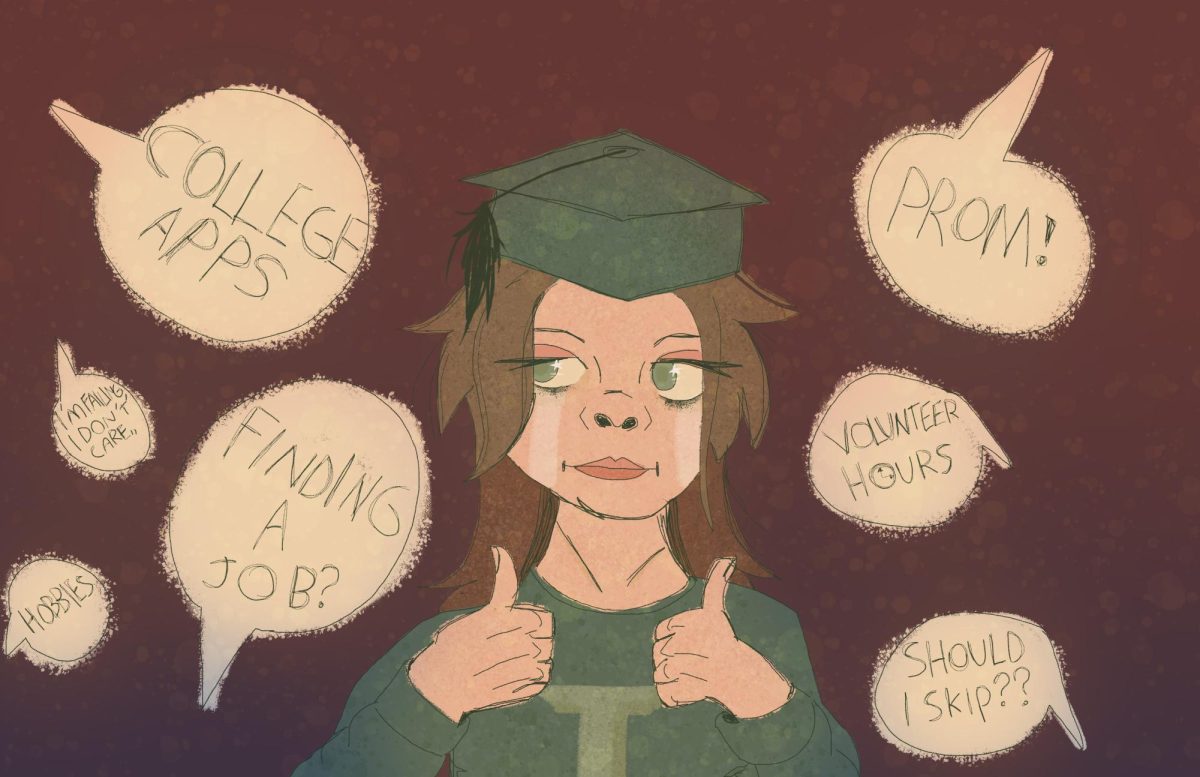Seniors experience a lack of motivation as they start committing to their post-secondary plans. Senior burnout, also known as “senioritis”, refers to a decline in both academics and attendance.
“My friends tell me that after they come back home from school, they never do work, and I feel like it’s really hard to be motivated at this point in high school,” senior Rachana Kanathur said.
According to school counselor Lisa Lassandrello, one factor of senior burnout is an overly demanding schedule. Involvement in extracurricular activities, jobs or internships, and school work can create stress and promote unhealthy time management skills.
“I see a lot of burnout also comes from students who are over engaged in a million activities, or have some difficulty setting boundaries,” Lassandrello said. “[It’s important] to make sure we’re figuring out that balance and then also having fun.”
Senior Barba Cardenas believes her burnout can be linked to an excess amount of homework.
“I’ve felt like I’ve had senioritis since sophomore year, having a lot of challenging courses that take up all my schedule and life in general, giving me that yearning for the 8 hours for 5 days a week to be over,” Cardenas said.
The belief that second-semester grades are not important also contributes to senior burnout. No matter the path students plan on taking after high school, many of these future schools and careers have already begun the enrollment process. As a result, not all seniors choose to put the same amount of effort into their work as they did in past years.
“I have noticed senioritis impacting my friends and peers, after the first semester is over and most college decisions are out, people are more inclined to skip school and not try as hard as they had to the last three years,” Cardenas said.
However, Lassandrello encourages students to stay on top of their grades and attendance.
“It’s a life skill for one thing, right, you’ve got to develop strategies for staying motivated even when times get tough,” Lassandrello said. “But also you are sending your final transcripts to your colleges, and we don’t want to see a decline from the first semester to the second. Colleges want to see that you’re still motivated and you’re still working hard.”
For mental health support or further information, students can visit Metea counseling or their class house. Social workers, counselors, and other resources are available for all students who may want them.
“It’s all about checking in with ourselves and trying to determine our needs at this moment,” Lassandrello said. “What are we lacking in this moment? What is causing us to kind of lose this motivation, and the things we can control, we want to be intentional about controlling.”






